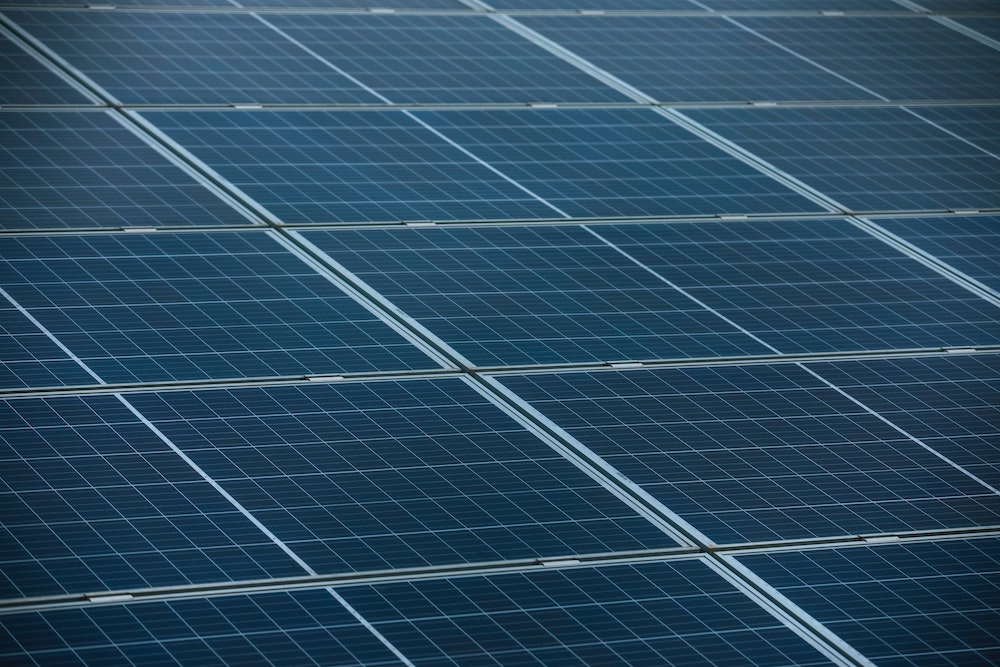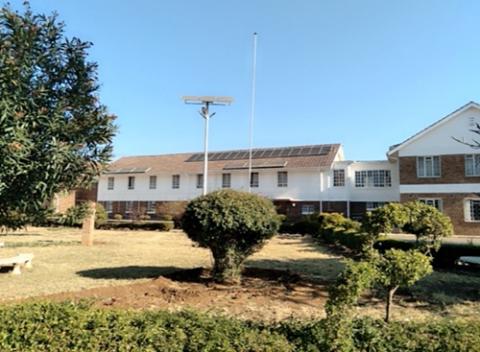
(Unsplash/Markus Spiske)
Renewable energy is energy from a source that is not depleted when used, such as wind or solar power. It is clean energy that comes from natural sources.
Africa is blessed with many natural resources, one of them being solar energy, which is available for the greater part of the year. From time immemorial, solar power has been used for various day-to-day activities like: drying of crops after harvest; drying fish, vegetables and meat for preservation; drying laundry; providing heat in cold weather; and at the same time being a natural source of vitamin D.
With the invention of hydroelectric power, the rudimentary solar power was set aside. But now we are taking it up again due to the high cost in generating hydropower energy — aggravated by years of drought that impacted negatively on the water levels in dams and lakes, which are the primary sources of hydropower generation.
The thick forests have suffered too, as people clear land for firewood and charcoal, and develop industries, towns and unplanned residential areas. Inevitably, deserts are encroaching due to indiscriminate cutting of trees, clearance of lands, poor methods of farming like stream bank cultivation, and wanton destruction of forests and wetlands — all contributing to climate change and its negative effects.
Advertisement
In saying "Climate change is a global problem with grave implications," Pope Francis calls us all to care for our "common home." This is a wake-up call, not merely to think outside the box, but to roll up our sleeves and take action against destruction of the environment.
And one of the practical ways is to embrace solar energy and other "smart" sources of energy. When one is in a comfort zone, the mind gets idle, but when discomfort emerges, one is forced to seek alternatives. Our story is a practical example of this reality!
For a long time now, Zimbabwe, in the southern region of Africa, has been experiencing massive power outages. The causes have been numerous, but top on the list have been the severe dry spells and droughts resulting in low water levels, making it impossible to generate adequate hydropower energy.
Like the rest of the people in the country, our community at the Convent of Our Lady, Kingsdale, Bulawayo — the main house and retirement home of the Missionary Sisters of the Precious Blood in the Zimbabwe-Zambia Province — was greatly affected by severe power outages. We depended entirely on hydroelectric power, whose availability was sporadic, with many hours of load shedding.
A solar power system seemed practical; we calculated that while it might be expensive to initiate and install, it would pay off in the long run.
Electric bills shot up every month, which was becoming unsustainable due to a national hyperinflation rate. Threats to cut off power supply to our institution became an unpleasant, energy-sapping song. This was the last straw! We had to seek a lasting solution with an alternative power supply. A solar power system seemed practical; we calculated that while it might be expensive to initiate and install, it would pay off in the long run.
Indeed, it was expensive, but we are already reaping the fruits of this investment in the sections of our house now run by solar power. The solar power system has incredibly reduced our monthly electricity bills by about 40%, and assured us of power availability all the time in the house. The system is efficient, and even on cloudy days we enjoy a power supply through the use of storage batteries. Since the installation of the system, we have had low maintenance costs, and this has ultimately become our contribution to a healthy environment.

Solar panels on the roof of the main convent building, which also provide light in the yard (Courtesy of Clara Mangwengwe)
The current system is used for lighting and small-scale heating purposes in limited areas of the whole complex. However, we plan to have the whole complex "solarized," as well as have solar heated water heaters, cookers and refrigerators. In addition, solar water pumps for the boreholes will provide us with a constant and regular supply of potable water.
Food that requires more cooking time, such as mangayi (dry maize which is boiled and eaten as a snack) and mazondo (beef trotters) can be cooked on a solar dish. This will inevitably save on power.
The jungles of Africa and elsewhere are turning into scrubland, if not deserts, due to cutting of trees for firewood, industry, charcoal, farming lands, erection of buildings and development of residential areas, to mention a few. While it takes about 10 minutes to cut down a tree, it takes about ten years to grow a tree to maturity. Cutting trees disturbs or even destroys the ecosystem. Some plant and animal species have become extinct as their habitat has been destroyed. Climate change is one telling example of the negative impact of felling trees. Each one of us should make a great effort to plant a tree yearly, to restore the depleting forests.
Using solar energy will also reduce the use of firewood or charcoal for cooking; and ultimately preserve trees and forests. Our community has already minimized the use of chemicals by replacing artificial fertilizers with compost manure and sludge from the biogas plant.
We have also reduced the amount of water we use for watering plants. Water from the laundry and kitchen is being used to water the fruit trees, and we have begun planting vegetables like onions, cabbage, beans and sweet potatoes under the fruit trees. So, as the trees are being watered, the crops also get watered, and the other way round, thus saving on water and energy needed for pumping the water. Another benefit is that the smell of onions or marigold flowers protects the fruit trees from aphids; and weeds are reduced where the beans are growing.
We have future plans to look for more ways to save the environment and create awareness in our education institutions. We will offer awareness campaigns in our schools, with poetry and art, discussions and tree planting days. In the first year we want to get schools and communities to begin to raise chickens and farm fish for independence. We are launching a campaign to save water, recycle, compost, plant bananas, and continue planting vegetables under the fruit trees; we will begin to use the windmills on our farm and eventually pump water with solar energy; and we will continue to make biofertilizer and revive our unused biogas resources.
Having a solar lighting system in our convent has been a long-awaited dream of mine. The frustration of power outages was becoming unbearable, but they are now a thing of the past. The student sisters are on cloud nine! They are happy their studies are no longer interrupted by power cuts. The elderly sisters with fading eyesight can now say their prayers and walk safely with adequate light. This is a huge milestone.
We are all very grateful to those who supported us and financed our dream. We are ready to roll out this project in our other houses as our long-term environmental campaign commitment, and will continue to explore ways of preserving the environment. The recycle, reuse and refill policy will be our mandate! No matter how small our strides will be, we know they will make a difference.





